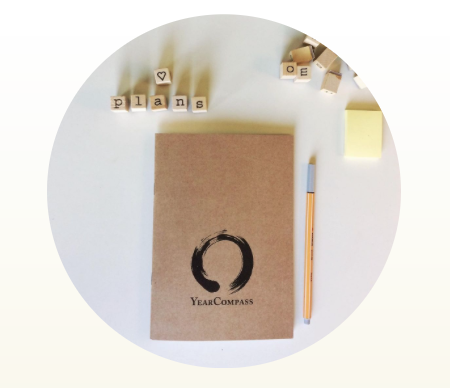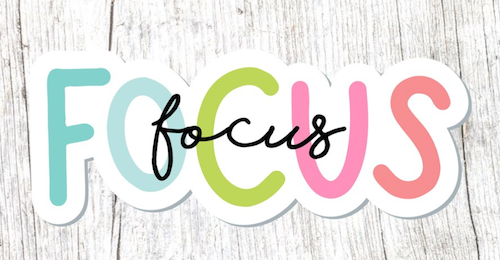Organize Your Annual Review & Mindset Blueprint for 2023

The holiday week is the perfect time of year to plan for next year, to set goals and intentions, and get a fresh start. Of course, you don’t need a new year for that. Check out Organizing A Fresh Start: Catalysts for Success from this past September to see all the ways you can find inspiration for fresh starts quarterly, monthly, weekly, and each day.
But before we can design the coming year, it’s essential to review the past, and to get a handle on what worked (and didn’t) so that we can use that knowledge to set us up for future successes.
LOOK IN THE REAR-VIEW MIRROR
On the very businesslike side of the productivity realm, this is called an annual review. People in the corporate world often experience this in terms of a sometimes-feared, often-maligned annual performance review.
That’s where you tell your boss how you think you did during the course of the year (in hopes of a raise, promotion, and an atta-boy/atta-girl), and your boss tells you how the company thinks you did (in hopes that you’ll be so thankful to have a job, you won’t notice that any extra money is going to the CEO’s newest yacht).
But a personal annual review, which can cover both lifestyle and professional topics, is solely for your own benefit. It’s to help you figure out the who, what, where, why, and how of your past year so that you can find the common threads (or snags) in your successes (or challenges).
Gather Supplies
The process is as formal or informal as you’d like, but I encourage you to start with some of the tools you use to create the structure of your year:
- planner or calendar
- journal
- correspondence — email or text threads — with your best friend, accountability partner, or mastermind group
- a sense of your values
With a pen and paper (or fresh Evernote note or blank document), sift through what you’ve written and logged about your life over the past year. Where did you go, with whom did you meet, and what did you do? As if you were reading a mystery, you’ll find yourself noticing clues to patterns in your year. (Feel free to wear your Sherlock Holmes deerstalker hat.)

There are a few kinds of clues, and depending upon your life and work, as well as what you value, different clues will yield evidence for making different kinds of decisions.
Know Your Values
Speaking of values, these are not uniform across nations, regions, communities, families, or even periods of our lives. In the United States Army’s Basic Combat Training, they focus on seven values: loyalty, duty, respect, selfless service, honor, integrity, and personal courage. Conversely, the immigration portal for the Durham Region of Ontario, Canada lists Canadian values as “equality, respect, safety, peace, nature – and we love our hockey!”
If you’re not quite sure how to identify the values that help you plan your life, here are some great resources:
Nir Eyal’s 20 Common Values [and Why People Can’t Agree On More] (Eyal is the author of Indistractible: How to Control Your Attention and Choose Your Life.)
James Clear’s 50 Core Values list (Clear is the author of Atomic Habits.)
Brené Brown’s 118 Dare To Lead List of Values (Brown is the author of Dare to Lead, as well as Daring Greatly, Rising Strong, and The Gifts of Imperfection.)
The Happiness Planner’s List of 230 Core Personal Values
Some people highly value achievement and contribution; for others it’s balance and inner harmony. For me, it’s knowledge, usefulness, and humor.
We’ll get to how to use your values in a bit. For now, it’s just helpful to go through one (or more) of these lists and identify from three-to-five overarching values that resonate with you and how you aspire to live your life.
Ask Qualitative Questions
The Good
- What challenges made me feel smart, empowered, or proud of myself this year?
- What did I create?
- What positive relationships did I begin or nurture?
- Who brought delight to my life?
- Who stepped up or stepped forward for me?
- What was my biggest personal highlight or moment I’d like to relive?
- What was my biggest professional moment I’d want to appear in my bio?
- What’s a good habit I developed this year?
The Neutral
- What did I learn about myself and/or my work this year?
- What did I learn how to do this year?
- What did neglect or avoid doing out of fear or self-doubt?
- What did I take on that didn’t suit my goals or my abilities?
- What was I wrong about? (Note: Being wrong isn’t a negative. Not one of us knows everything. In the words of Dr. Maya Angelou, “Do the best you can until you know better. When you know better, do better.”
The Ugly
- What challenges made me feel weaker or less-than?
- Whom did I dread having to see or speak with this year?
- Who let me down?
- Whom did I let down?
- What did I do this year that embarrassed me (professionally or personally) or made me cringe?
- When did I hide my light under a bushel?
- What am I faking knowing how how do? — Instead of pretending you know how to do something but are choosing a different path, ask for help. Make decision about what to do from a position of strength rather than weakness.
- What’s a bad habit I regret taking up or continuing?
- Where did I spend my time wastefully or unproductively? (It’s social media. For all of us.)
- Where did I spend my money wastefully or unwisely? (Target? Let’s take a poll. Was it Target?)
Although most of these are questions I’ve developed over the years, the inspiration for including this list came from the Rev Up for the Week weekly newsletter put out by Graham Allcott, author of How to Be a Productivity Ninja, among other titles.









I’m never going to write about year-end reviews again. Why would I when I can just direct people to your fabulous post?
You are so lovely. Thank you! And I’m fairly certain that you are the person who introduced me to Year Compass!
Have a wonderful 2023, Janet!
Right? Lol!
I’m with Janet on this one! Lots of helpful tools and thoughtfully-written advice. Thanks Julie!
Thanks so much! I appreciate the kind words!
Thanks for reading!
I was thinking this might be a year of no goals, resolutions, or theme words for me. Not sure yet. But I do love your lists of questions. And your mug! I’m a Questioner with a touch of Rebel. It can be a problem. One good thing in my life for sure, though, is YOU! Happy New Year, Julie!
I never would have guessed you were a Rebel at all, Hazel. I haven’t met many, so I’m impressed. The Questioner aspect doesn’t surprise me.
And I’m floored and flattered to be a good thing in your life, my friend! Happy New Year to you, too!
My head is spinning in a good way. Thank you, Julie! I agree with Janet that your post is the quintessential guide for doing a year-end review and future thinking.
I use a variety of techniques that have changed over the years. Last year was the first time I created a vision board. It included a word of the year and motto, which as you suggested here, were prominently visible. “Flourishing” and “Manifest amazing shit!” were so powerful, along with the non-traditional vision board, that I’m not so anxious to let them go. For 2023, some of those things may stay. The reviewing involved personal and professional “digging,” which I loved. So many interesting discoveries were made, noted, marked, and celebrated. Those helped me to focus on what I wanted to release, bring forward, or manifest for 2022.
The review was essential. I’ve got my work cut out for me as I haven’t dug in yet. I’ve been collecting ideas in my 2023 folder and will get to “it” soonish. I bookmarked your post to return to again.
Wishing you a very happy, healthy New Year filled with lots of knowledge, usefulness, and humor! You share each of those so beautifully.
Oh, gracious, Linda! Thank you. Quintessential? Now what the heck will I write next year? 😉
You are always such a success, doing impressive things, I wish I could be a fly on the wall during your own annual review and planning sessions.
And may you also have a happy, healthy year full of all of the things you value. Again, thank you for your praise and kindness!
[…] And for a more comprehensive guide, I highly recommend my friend Julie Bestry’s Organize Your Annual Review & Mindset Blueprint for 2023. […]